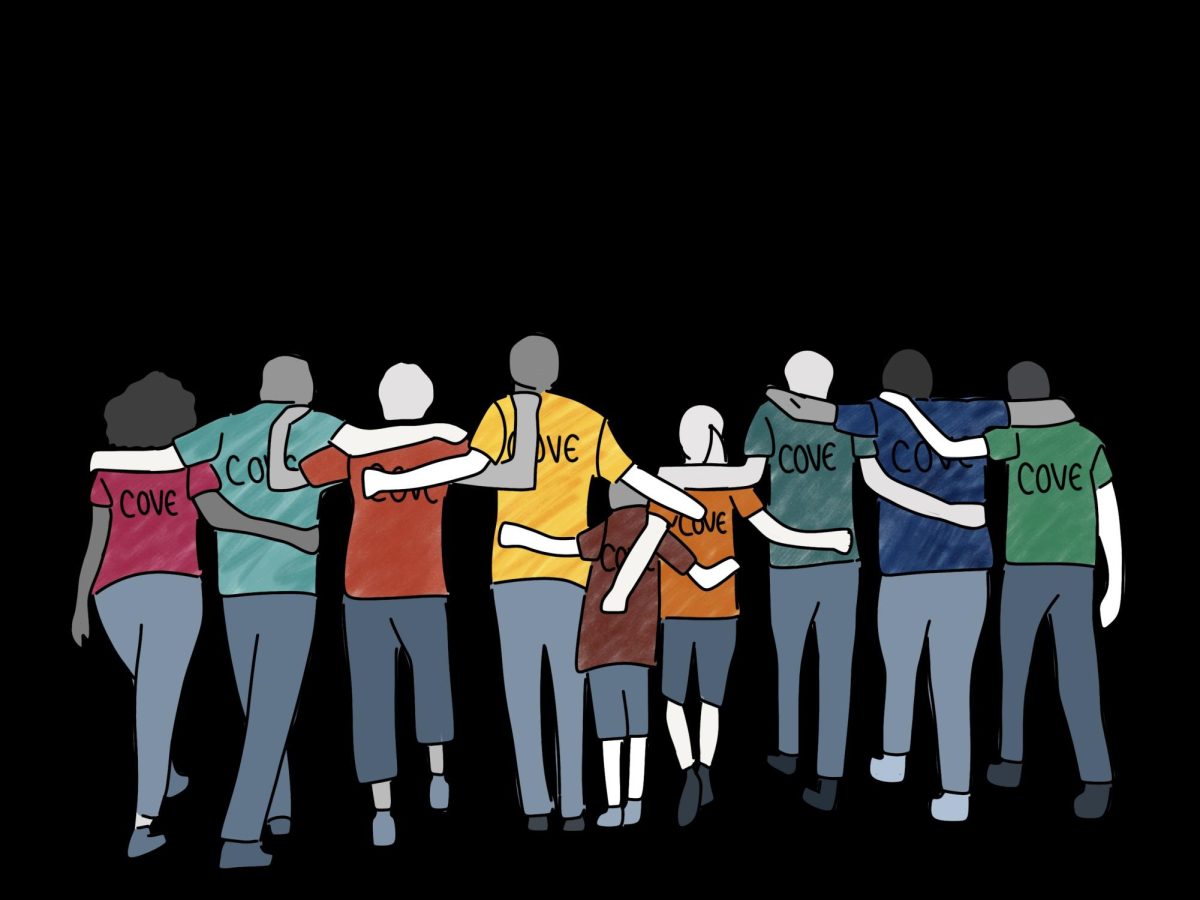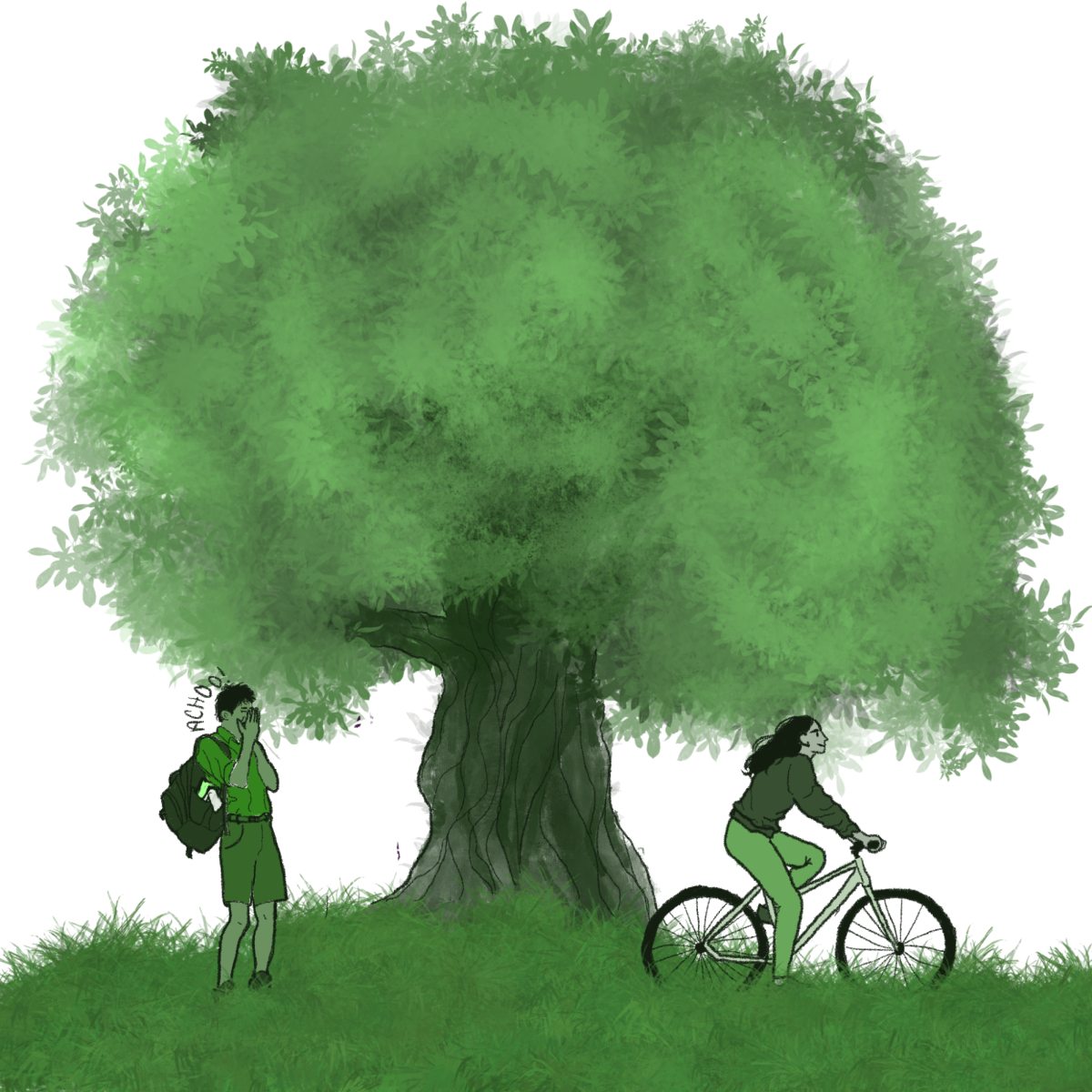“Brain rot,” a decline in a person’s mental state brought on by overconsumption of media, was chosen by Oxford Dictionary as their Oxford Word of the Year for 2024. Although it is a two-word phrase, the dictionary seems to regard it as one word for this purpose. Using language data and over 37,000 votes, experts found “brain rot” to be the most prominent word used this year. While this word is not new, and in fact goes back as far as 1854 (when it was used in Henry David Thoreau’s book “Walden”), experts found that the word had surged in popularity this year, with a 230% increase in use between 2023 and 2024.
It seems to me that brain rot is an accurate summation of our lexicon over this year, as developments in generative artificial intelligence and trends on media platforms like TikTok seem to shape public discourse. Columns on brain rot have been printed in the Maroon-News along with publications by mental health institutes. Its mention has become so commonplace that the word is seen as emblematic of an entire calendar year.
What does it mean for a year of our lives to be defined by filling our brains with such a steady stream of thoughtless, emotionless information? The humorous nature of the phrase masks, in my opinion, deeply rooted fears about the changing world around us. “Rotting” our brains prevents us from introspection, distracted by the words of others to avoid sitting with uncomfortable thoughts and feelings.
Thoreau, despite writing about a world centuries away, still was able to capture the dangers of brain rot: “While England endeavors to cure the potato-rot, will not any endeavor cure the brain-rot, which prevails so much more widely and fatally?”
The “potato-rot” seems to refer not to a fear of forgoing mash with an English Sunday roast, but rather a critique of a society that seems to favor short term satisfaction to self improvement and intellectual exploration. A world that privileges the ephemeral over the eternal. And while our ways of seeking short term rewards via technology are far more immediate than perhaps Thoreau could have thought possible, his message still cuts through the dings of text notifications and infinite TikTok feeds today.
The digital age has provided a record of our collective consciousness. It seems fitting to me that 2024 will be remembered as a year of overconsumption and apathy after years defined by anxiety and anger. “Climate emergency” and “vax,” both recent winners, capture years marked by crisis. Questioning and reflection took back seats in a world driven by survival and instability. The almost apocalyptic narratives surrounding this time populated not only our internal dialogue, but our news outlets, chatrooms and other forms of online media interaction. While technology provided a way to have a semblance of normalcy in an ever-changing world — allowing us to continue to work, attend school, connect with others and stay informed on safety updates — it also made the horrors of the pandemic pervasive, immediate and overwhelming. Rather than hearing one awful story at a time via word of mouth or other more analog forms of communication, we were drowning in them. Media sites inundated us with death and destruction. Danger became omnipresent and endless as we scrolled through story after story that left us in a constant state of distress and anxiety.
Now that we no longer live in a global public health emergency, our future still seems uncertain as technological innovation and globalization continues to weave into all aspects of our lives. Pessimism permeates as news screens with stories full of worldwide horrors distill to sound bites and headlines. I wonder if “brain rot” is not involuntary, but rather a conscious apathy. It seems to be a way to ignore the unsettling realties, flooding our brains with social media and short-form content. The “brain rot” thus serves as a coping mechanism. As our world continues to evolve in unprecedented ways, and with any global strife or malady available at our fingertips, we are tasked with finding ways to manage living in this age of informational overabundance. It can seem easier to drown out with more information, more videos and more lighthearted media to distract us.
Avoiding difficult subjects will not make them go away, but it will make it harder for us to think critically about complex problems. It echoes the world Thoreau warned us about, in which we do not have the intellectual capacity to engage in productive conversation necessary to find solutions. As we close a year of “brain rot,” hopefully we can usher in one of attentiveness, in which we find a balance between over consuming media and being attuned to the world around us.






